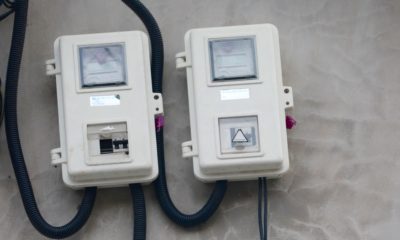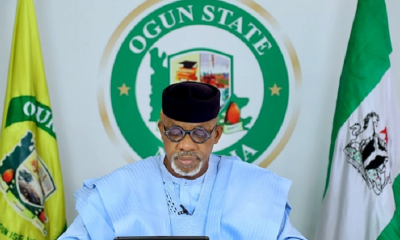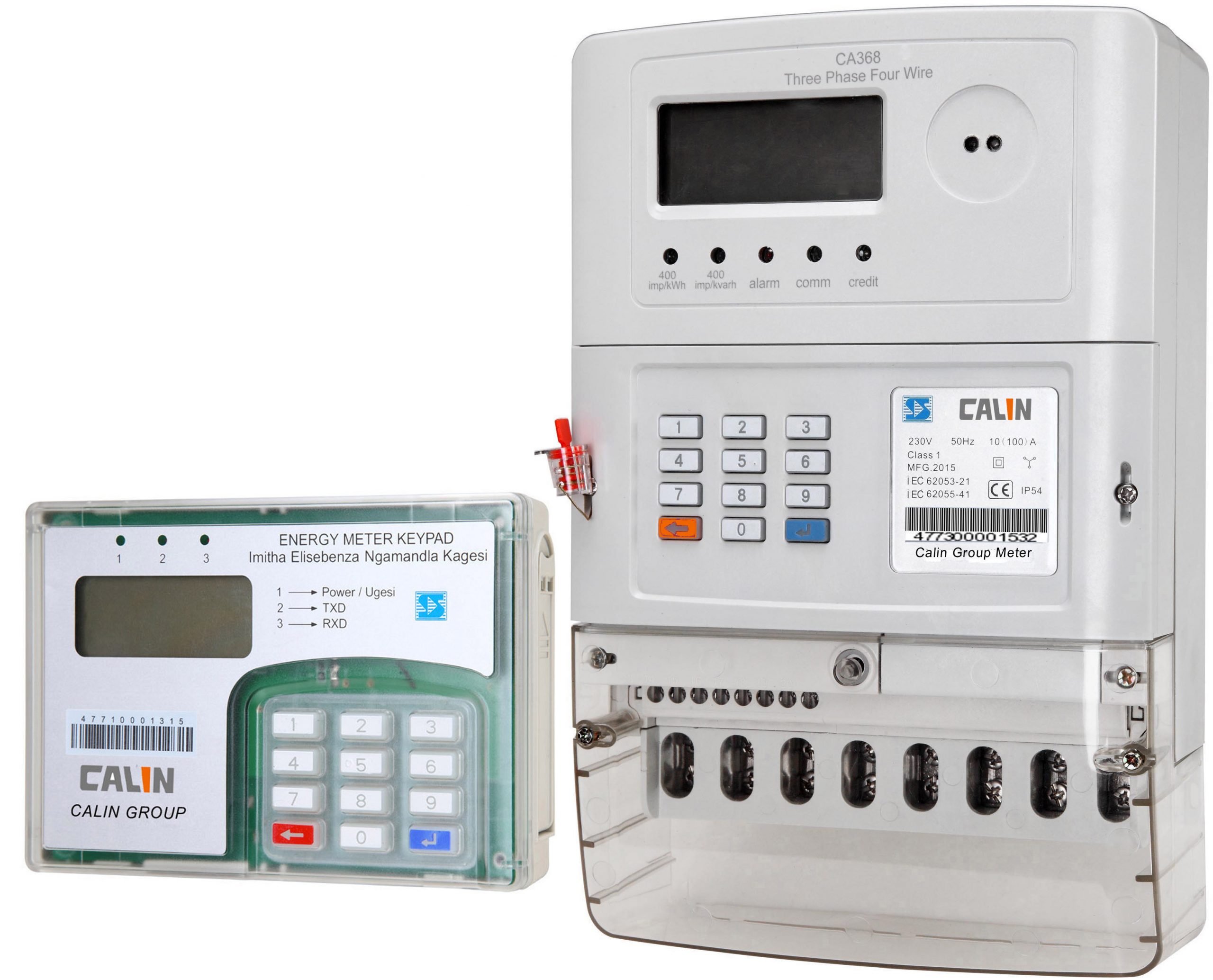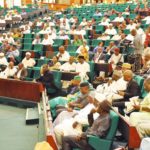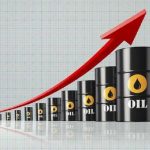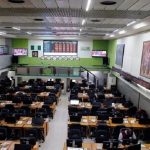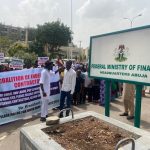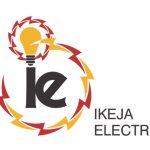General
MAP: DisCos Process 250,000 Applications for Prepaid Meters
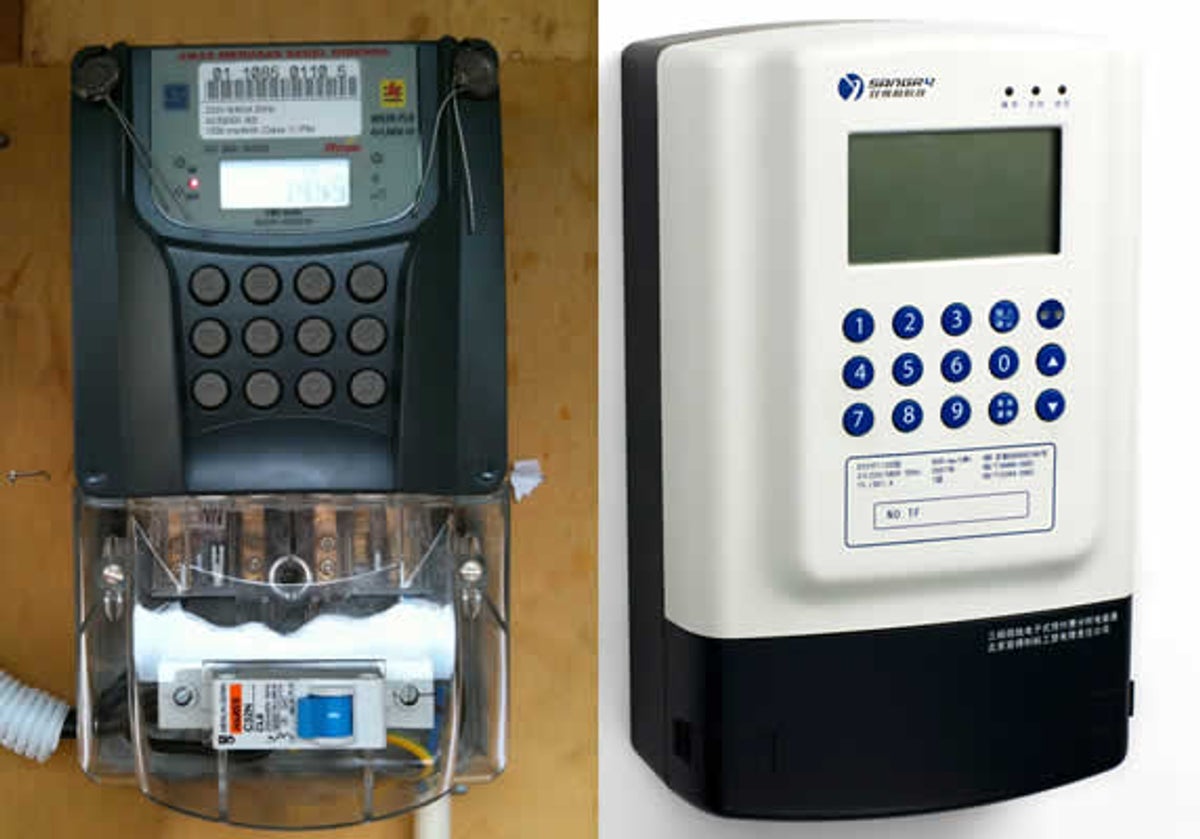
By Dipo Olowookere
Not less than 250,000 applications for prepaid meters have been received and processed so far by distribution companies (DisCos) across the country under the Meter Asset Provider (MAP) Regulation of 2018.
The MAP policy was created by federal government through the Nigerian Electricity Regulatory Commission (NERC) to close the current metering gap of about 5.3 million consumers.
Nigeria’s Vice President, Mr Yemi Osinbajo, while speaking at the commissioning projects of Niger Delta Power Holding Company (NDPHC) in Abeokuta on Thursday, August 15, 2019, said efforts were being made to ensure all unmetered electricity consumers are reached.
“On May 1 2019, MAPs, commenced meter rollout; over 250,000 applications have been received and processed by DisCos to date and of course, that is then supposed to be forwarded to MAPs for installation.
“This figure is expected to quadruple by the end of 2019, and double by the end of 2020, largely closing the current metering gap of about 5.3 million consumers,” the Vice President said.
However, he stressed that the DisCos were underperforming, saying that they lack the capacity to supply power to end users because of infrastructure.
“Despite the availability of 8,000MW of generation and 7,000MW of transmission capacity, the lack of DisCos’ infrastructure to absorb and deliver grid power to end users has largely restricted generation to an average of about 4,000MW and sometimes falling below 4,000MW.
“Apart from the lack of infrastructure is the inability of DisCos, first, to provide distribution assets generally and also metering, and you have heard what the MD of TCN said about the unavailability of distribution assets, there is also the unavailability to provide metering to consumers.
“In resolving this issue, the Federal Government stepped in through the Nigerian Electricity Regulatory Commission’s (NERC) Meter Asset Provider (MAP) Regulation of 2018. This is essentially regulation to provide metering, through independent or third parties to consumers all across Nigeria,” he said.
According to the Vice President, “In the past few years, resolving the power supply problem has been top priority for the Federal Government of Nigeria.”
He said, “Today, we have about 13,427MW of installed capacity, and an available capacity of about 8,342MW. This was achieved through the efforts of government and its private sector partners in the rehabilitation and commissioning of turbines in Shiroro, Egbin, Delta Power, Sapele and Gbarain.
“Before the end of the year, new generation is expected from Gbarain and an extra 115 MW; Kashimbilla (40 MW); Afam III Fast Power (240 MW); Gurara (30 MW); Dadin Kowa (29 MW); and Kaduna (215 MW).”
Mr Osinbajo stated that, “In the long term, several solar plants will come on stream. The national grid already has the capacity to transmit 7,000MW, an increase from less than about 5,000MW in 2015 and this is due to the completion and improvement of several transmission projects.
“We have been told by the MD of NDPHC, Mr Chiedu Ugbo, the completion of projects already done by TCN, like the Ikot Ekpene switching station and the completion of the Ikot Ekpene-Ugwuaji-Makurdi-Jos loop, which was done by the NDPHC in 2017.
“But distribution capacity in the 11 DisCos are significantly low, hovering at around 4,000MW on average with a peak of about 5,400MW.”
He described the commissioning of Thursday’s projects as “an important part of the federal government’s efforts to improve the supply and quality of power to homes and businesses in Nigeria.”
According to him, it was part of efforts to open up the space for private sector into the power sector to open up the market to satisfy energy consumers in the country.
“The whole idea of it is to create a regime whereby there can be more willing-buyer-willing seller arrangements. It is in my view completely impossible, to satisfy Nigeria’s power demands from the national grid alone.
“There must be independent power suppliers and this why we have all these regulations for micro-grid and other willing-buyer-willing-seller arrangements and that is the way by which we can go forward and ensure that we are able to serve many of the unserved and underserved communities that we have today.
“These polices when fully implemented, will enable the opening up of the market to new investors in generation, transmission and distribution infrastructure, transacting directly with each other, to serve willing customers and this is the way which the Federal Government will proceed to ensure that we increase some more opportunities to existing DisCos and to other investors who may wish to serve Nigeria’s huge power market, which of course, at the moment is terribly underserved,” he said.
Mr Osinbajo said, “Federal Government is committed to ensuring that we have adequate power supply both in our home and also in our various places of business.
“Power supply is the life blood of any economy and we will remain committed to ensuring that power supply is adequate everywhere.
“Just as you heard, it is certainly not going to be a short walk, but as we have seen, from all what we have heard so far, there so much to be done and we are committed to doing it.
General
Discos Restore Power Supply After First National Grid Collapse of 2026
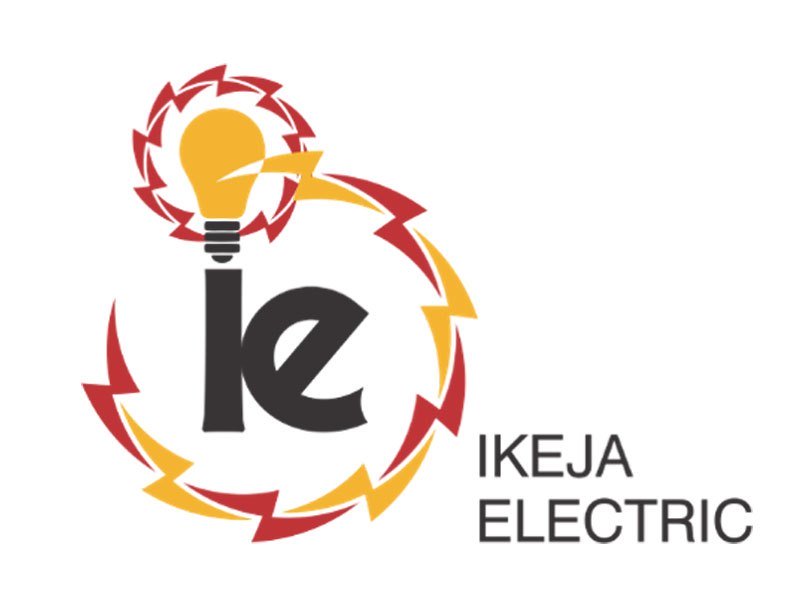
By Adedapo Adesanya
Gradual electricity restoration has began across the nation after the country’s national grid recorded its first collapse in 2026 on Friday.
The first collapse in 2026 on January 23 came after a similar incident on December 29, 2025, which had caused widespread power outages across the country.
The prevalent grid collapse in the country has been attributed to a combination of technical faults, inadequate maintenance of transmission lines, and fluctuations in generation capacity.
Earlier today, electricity generation dropped sharply from over 4,500 megawatts to as low as 24 megawatts as of 1:30 pm.
Checks showed that all 23 power generation plants connected to the grid reportedly lost output during the incident, resulting in zero power allocation to each of the 11 electricity distribution companies from Lagos to Kano to Abuja.
Officials of the Transmission Company of Nigeria (TCN) had yet to issue a detailed statement at the time of filing this report by 4:40 p.m.
However, a notice from Abuja Electric Distribution Company (AEDC) to customers noted that “gradual restoration of supply” has commenced.
In Lagos State, several streets in the Orelope area of Alimosho Local Government also reported power restoration.
General
Google Search Shows Nigerians Prioritizing Ambition, Self-Growth in 2026

By Aduragbemi Omiyale
A Google Search report has revealed that Nigerians are deploying the platform to make findings on how to get better in 2026 so as to navigate the year seamlessly.
Data showed that in the first two weeks of January, there has been a 40 per cent spike in searches related to self-improvement, entrepreneurial growth and “becoming better” as they search for the tools needed to succeed in every area of life.
A few of the most searches on Google by Nigerians this year have been Starting a blog, Launching a podcast, How to start a business, and Opening a YouTube channel, among others.
For example, How to start a business emerged as the top-searched how to start query this month, seeing a significant 80 per cent increase as Nigerians look to build new ventures and drive economic opportunity.
Investing in the Better Me
Personal growth is a top priority for Nigerians this year, with searches for how to be a good/better person increasing by 20 per cent. This desire for improvement extends into the heart of the home and community, with people searching for ways to be better partners, husbands, wives, and listeners.
A Healthy Start to 2026
Well-being is at the forefront of the national conversation. Nigerians are forming new habits to stay energized, with searches for how to eat healthy and healthy diet rising by 40 per cent. Mental wellness is also gaining momentum, as searches for “how to meditate” spiked by 40 per cent during the same period.
The Quest for Mastery
Whether it is professional development or personal hobbies, the quest for mastery is on. Top mind for many are searches on how to improve communication skills, memory, and even English proficiency. In the world of leisure and skill-based learning, Nigerians are looking to get better at everything from chess and running to singing and even Fortnite.
“These trends are a powerful reflection of Nigeria’s collective ambition and our shared desire to grow.
“We see Search as a cultural mirror that captures the pulse of the nation, and remain committed to ensuring our tools, from Search to Gemini, provide the relevant and helpful insights Nigerians need to navigate their daily journeys and build a more prosperous future,” the Communications and Public Affairs Manager for Google West Africa, Mr Taiwo Kola-Ogunlade, said.
The full list of Searches is below.
|
Top “how to be a better…” searches |
Top “how to improve…” searches |
|
1. How to be a better person 2. How to be a better lover 3. How to be a better girlfriend 4. How to be a better boyfriend 5. How to be a better husband 6. How to become a better writer 7. How to become a better singer 8. How to be a better wife 9. How to be a better kisser 10. How to be a better listener |
1. How to improve English 2. How to improve memory 3. How to improve credit score 4. How to improve communication skills 5. How to improve handwriting 6. How to improve eyesight 7. How to improve posture 8. How to improve gut health 9. How to improve concentration 10. How to improve circulation |
|
Top “how to get better at…” searches |
Top “how to start…” searches |
|
1. How to get better at Fortnite 2. How to get better at chess 3. How to get better at basketball 4. How to get better at warding League 5. How to get better at singing 6. How to get better at drawing 7. How to get better at pull ups 8. How to get better at math 9. How to get better at running 10. How to get better at soccer |
1. How to start a business 2. How to start a blog 3. How to start a conversation 4. How to start a podcast 5. How to start a YouTube channel 6. How to start running 7. How to start an essay 8. How to start a speech 9. How to stop worrying and start living 10. How to start a letter |
General
Cloover Secures $1.2bn to Build AI Operating System for Energy Independence
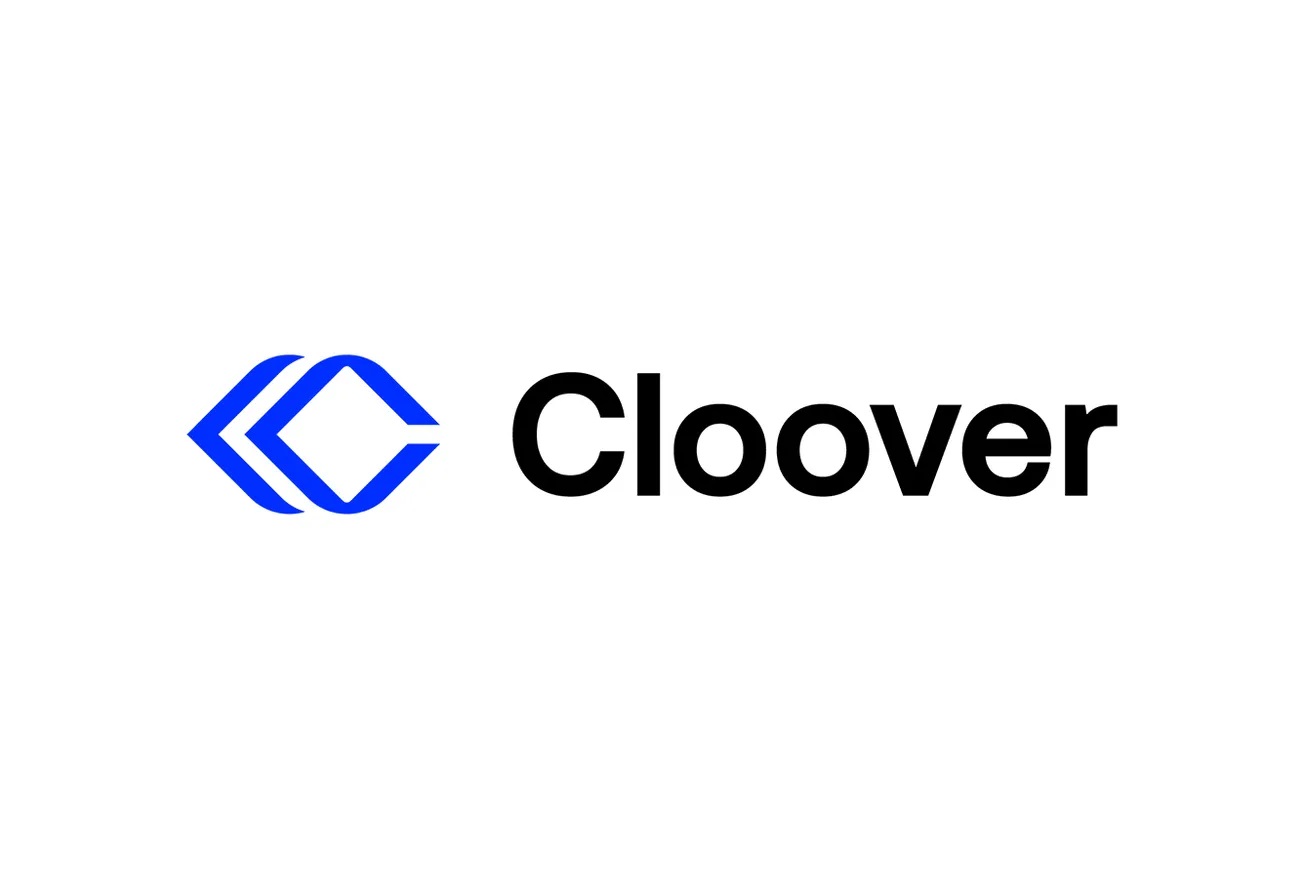
By Dipo Olowookere
About $1.222 billion in both equity financing and debt facility has been secured by a pan-European platform building an operating system for energy independence, Cloover.
The company, established in 2023 by Jodok Betschart, Peder Broms and Valentin Gönczy, recently received $22 million in Series A equity funding and a $1.2 billion loan to enable it build Artificial Intelligence (AI) operating system for its operations.
The globe is racing to secure its energy future as electricity demand rises, grids come under pressure, and households face growing uncertainty over costs and supply.
At the same time, demand for decentralized energy solutions like solar, batteries, heat pumps, and EV charging is surging. The missing piece has been infrastructure that can deliver these systems at scale.
Cloover is building the digital nervous system of the distributed energy economy. Its AI-powered platform integrates workflow management, financing, procurement, and energy optimization into one seamless operating system. It automates complex workflows, detects risks early, and empowers data-driven decisions from the first customer leading to long-term energy-management through Cloover’s EMS and dynamic tariffs.
Further, Cloover’s AI Finance co-pilot helps SME installers solve capital flow challenges along the whole value chain and improve liquidity to enable faster growth. By replacing disconnected tools and slow financing processes with one integrated system, Cloover enables installers to close more projects, move faster, and serve a broader customer base.
A statement from the energy firm disclosed that the equity round was led by MMC Ventures and QED Investors, with participation from Lowercarbon Capital, BNVT Capital, Bosch Ventures, Centrotec, and Earthshot Ventures. The debt facility was provided by a leading European bank to fund customer and installer financing on the platform.
Cloover also benefits from a €300 million guarantee from the European Investment Fund, which underpins its financing programs and enables scalable, low-cost capital for the energy transition. In total, Cloover has now raised more than $30 million in equity financing and secured over $1.3 billion in debt.
With the new capital, Cloover will expand into additional European markets and is considering France, Italy, the UK, and Austria, deepen its platform with further AI-driven workflow automation and financing products.
“With this $1.2 billion commitment, we’re enabling households to become energy independent, without the friction of upfront costs or complex loan applications. Our AI operating system connects stakeholders across the value chain and revolutionizes how energy independence becomes the new norm,” the chief executive of Cloover, Mr Betschart said.
Also, the chief product officer at Cloover, Valentin Gönczy, said, “Cloover is not just about financing – we’re building the backbone for energy independence. We are creating the Shopify of Energy: a platform that equips manufacturers, installers, households, and investors with the tools to grow, collaborate, and deliver distributed energy at scale.”
The General Partner at MMC Ventures, Oliver Richards, while commenting, said, “Cloover is tackling one of the largest and most structurally important opportunities in the European energy transition.
“What truly sets them apart is execution: in 2025 the team delivered outstanding commercial progress while building the foundations of a scalable platform business. Jodok, Peder and Valentin have assembled an exceptional team with deep expertise across energy, software, and credit, and we’re excited to back them as they scale Cloover into a category-defining company.”
-

 Feature/OPED6 years ago
Feature/OPED6 years agoDavos was Different this year
-
Travel/Tourism9 years ago
Lagos Seals Western Lodge Hotel In Ikorodu
-

 Showbiz3 years ago
Showbiz3 years agoEstranged Lover Releases Videos of Empress Njamah Bathing
-

 Banking8 years ago
Banking8 years agoSort Codes of GTBank Branches in Nigeria
-

 Economy3 years ago
Economy3 years agoSubsidy Removal: CNG at N130 Per Litre Cheaper Than Petrol—IPMAN
-

 Banking3 years ago
Banking3 years agoSort Codes of UBA Branches in Nigeria
-

 Banking3 years ago
Banking3 years agoFirst Bank Announces Planned Downtime
-

 Sports3 years ago
Sports3 years agoHighest Paid Nigerian Footballer – How Much Do Nigerian Footballers Earn



